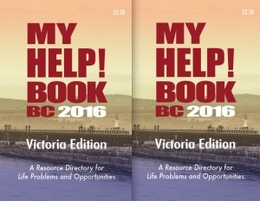 There are many organizations that offer help to the public, yet the public might not be aware that these resources are available to them. If people don't know these resources exist, they can't know to search for them. Finding help quickly and easily with issues like unemployment, divorce, mental health or insolvency can be crucial for many people in those situations. Letting people know their rights and entitlements, including monetary benefits, housing and legal counsel can make the difference between people being overcome by problems, or being able to prevent and surmount them. People who want to volunteer to give something back to their community, to start a business, or to find learning opportunities can all benefit from knowing about community and government resources. Despite the popularity of searching for information online, the existence of many useful resources remains obscure as they have only a cursory presence online or are poorly promoted. For people needing help because they are experiencing a personal or family crisis, or they are looking to make a life change, the Internet can and does fall short - assuming those in need can even get online. This is commoner than you think: Canada's telecoms services are among the most expensive worldwide and 27% of people with incomes under $30,000 yearly in Victoria lack Internet access. But even if someone is online, using the internet to find information is a skill in itself. Many elderly people, or those with sight or literacy problems, lack computer skills or are technophobic. Given how contact details such for many helping organizations are buried in a small corner of a bewilderingly large or complex website, the internet is far from ideal. Those belonging to vulnerable groups who are most in need of assistance - the impoverished, elderly, disabled, and newcomers to an area - stand the greatest risk of missing out. At a recent talk (January 2016*) the new B.C. Ombudsperson reported that their office receives many phone calls from people who are simply unsure of where to turn for help with a problem. Phone still remains the most popular method of contact over email and online forms. Clearly we have a problem -- even though community resources exist, too many people remain unaware or unable to reach out.  My Help Book BC offers a simple way to help people learn about important community information that may prove crucial to help them or someone they care about. Check here for more information on purchase locations. Bulk discounts and free copies are also available. *Jay Chalke, January 13, 2016, OAP meeting Victoria BC
0 Comments
7 Essential parts of an advocacy action letter by My Help Book 2014 (follow-up to 5 Self-Advocacy Tips).
More information: 5 Self-Advocacy Tips 17 Super Sources of Legal Information in BC Example of income advocacy in extreme situations of need from OCAP ACORN Canada - for information on issues affecting low income people or families Povnet's "Find an Advocate" map. Disclaimer: These self-advocacy tips are meant for people in serious situations where their rights are being violated and who can’t find an advocate or lawyer. These tips don’t work if you are using them to be a bully, a petty tyrant, an abusive consumer, or to just to be a jerk. If you make a big issue out of a petty concern, to be vindictive, or because you are a prima donna, you will offend and alienate people around you. 17 Super Sources of Legal Information in BC - from My Help Book page 22. Click on the photo for links (or see below). Learn more about My Help Book here.
|
AuthorMy Opportunity & Help Book BC Categories
All
Archives
December 2020
|
Proudly powered by Weebly
 RSS Feed
RSS Feed